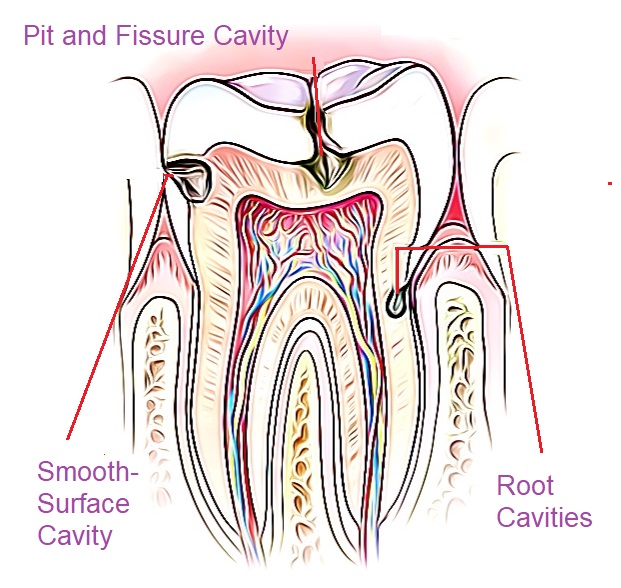Teeth Care Essentials: Healthy Smiles
Maintaining good oral health is crucial for a healthy smile, and it involves more than just brushing your teeth twice a day. A comprehensive approach to teeth care includes understanding the importance of regular dental check-ups, the role of diet in oral health, and the correct techniques for brushing and flossing. Moreover, being aware of common dental issues and their prevention can significantly contribute to a lifelong healthy smile.
Understanding the Basics of Teeth Care
At the core of teeth care are the daily habits that help prevent the buildup of plaque, a sticky film of bacteria, and tartar, a hardened form of plaque, on the teeth. This buildup can lead to cavities and gum disease if not addressed properly. The American Dental Association (ADA) recommends brushing teeth at least twice a day with a fluoride toothpaste and cleaning between teeth once a day with floss or an interdental cleaner. Additionally, regular rinsing with an antibacterial mouthwash can help kill bacteria and freshen breath.
The Role of Diet in Oral Health
Diet plays a significant role in maintaining healthy teeth and gums. Foods that are high in sugar and starches contribute to the development of cavities. When these foods break down, they produce acids that can damage tooth enamel. On the other hand, a diet rich in fruits, vegetables, and whole grains can help keep teeth and gums healthy. Calcium and vitamin D are particularly important for maintaining strong teeth and bones. Dairy products, leafy greens, and fortified foods are good sources of these nutrients.
Regular Dental Check-Ups
Regular dental check-ups are a critical component of teeth care. These visits allow dentists to identify and treat oral health issues early on, preventing more severe problems from developing. A typical dental check-up includes a thorough examination of the teeth and gums, a professional cleaning to remove plaque and tartar, and sometimes X-rays to check for cavities or other issues. The frequency of dental visits can vary depending on individual oral health needs but generally should occur every six months.
Addressing Common Dental Issues
Several common dental issues can affect oral health, including cavities, gum disease, and tooth sensitivity. Cavities, or tooth decay, occur when bacteria in the mouth break down tooth enamel, creating holes. Gum disease, or periodontal disease, is an infection of the gums that can lead to the loss of teeth if not treated. Tooth sensitivity can be a sign of receding gums or tooth decay, causing pain when consuming hot or cold foods and drinks. Understanding the causes and symptoms of these issues can help in their prevention and early treatment.
Advanced Teeth Care Techniques
Beyond the basics, there are advanced techniques and tools that can enhance teeth care. For example, using an electric toothbrush can be more effective than a manual toothbrush in removing plaque. Interdental brushes and dental picks can be used for cleaning between teeth, especially in areas where regular flossing is difficult. Desensitizing toothpaste can help alleviate tooth sensitivity. Moreover, teeth whitening strips or professional teeth whitening treatments can help improve the appearance of teeth, although these should be used under the guidance of a dentist.
The Impact of Lifestyle on Oral Health
Lifestyle choices can significantly impact oral health. Smoking and the use of tobacco products are known to increase the risk of oral cancer and gum disease. A dry mouth, often a side effect of certain medications or medical conditions, can increase the risk of tooth decay and other oral health issues. Furthermore, activities that can lead to tooth trauma, such as contact sports without proper mouth protection, should be approached with caution.
Conclusion
Achieving and maintaining a healthy smile requires a multifaceted approach that includes daily care habits, a balanced diet, regular dental check-ups, and awareness of common dental issues. By understanding the importance of each of these components and implementing them into daily life, individuals can prevent many oral health problems and enjoy a healthy, confident smile for years to come.
What is the best way to prevent tooth decay?
+The best way to prevent tooth decay is through a combination of good oral hygiene practices, including brushing teeth at least twice a day with a fluoride toothpaste, cleaning between teeth once a day, and limiting sugary and starchy foods and drinks. Regular dental check-ups are also crucial for early detection and treatment of any oral health issues.
How often should I visit the dentist?
+It is generally recommended to visit the dentist every six months for a routine check-up and cleaning. However, the frequency of dental visits may vary depending on individual oral health needs, as determined by a dentist.
What are the symptoms of gum disease?
+The symptoms of gum disease can include swollen, red, or tender gums, bleeding while brushing or flossing, bad breath that won't go away, and loose teeth. In its early stages, gum disease may not cause any pain, making regular dental check-ups important for early detection.
By embracing a comprehensive approach to teeth care, individuals can not only achieve a healthy, beautiful smile but also contribute to their overall health and well-being. Remember, a healthy smile is just the beginning of a lifelong journey of wellness and confidence.
